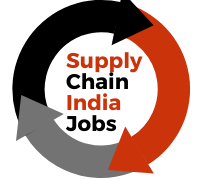
What does a Supply Chain Analyst do?
See also :
- What Are Deepfakes and How Are They Created?
- Principles of Warehouse Management
- How to Write a Supply Chain Resume Objective in 4 Steps
- Supply Chain Manager Interview questions and answers
- Are you ready to apply if you find your dream job today?
What Does A Supply Chain Analyst Do? In this article, we will take you through the roles and responsibilities of a supply chain analyst and the skills required to get the job. Well, to put it simply, a supply chain analyst collects and analyze supply chain data, suggests improvements to increase performance and reduce costs and helps companies improve the efficiency of their supply chain procedures. Companies rely on analysts to determine if their existing logistics plans, computer systems and shipping procedures can be improved.
On other days, some supply chain analysts do more hands-on duties such as checking warehouse stocks, order processing, and routing logistics. They help warehouse staff develop the most efficient strategies for product collection and packaging.
The analyst also studies supply and demand statistics to ensure that the correct quantities of each product are available.
Analysts also study current technologies and look for other options to determine how services can be improved, and if a new system is put in place, the analyst may be responsible for providing training for managers and freight personnel.
Criteria to be become a Supply Chain Analyst
Many supply chain analysts hold a bachelor’s or master’s degree in business administration, but this certification is not always necessary to get the job. Generally, employers value years of work experience as much as they care about the degree.
A person who wants to become a supply chain analyst can develop the skills needed in retail, merchandising, procurement, logistics and warehousing jobs.
Strong computer skills are also very important, so people with a background in software engineering or data mining have an advantage when applying for analyst jobs.
Supply Chain Analyst Duties :
- Establish a supply chain side operation analysis model based on the company’s business logic, and use data to drive business strategies to optimize business in procurement, warehousing and logistics;
- Cooperate closely with the business department, continuously track business data, provide early warning signs, monitoring and interpretation for abnormal indicators, promote attribution analysis and solution design, follow up the implementation of the strategies, and review and improve in a timely manner;
- Actively respond to key business analysis needs and output analysis reports;
- Based on business needs, participate in the relevant system design of the technical department, iterate system functions, and promote data systematization;
- Sort out the company’s report system, unify the indicator caliber, and make overall arrangements for report production.
Supply Chain Analyst Job Description
- Responsible for supply chain supply and demand, inventory management and other related data analysis and modeling
- In-depth understanding of business, accurate analysis of problems, and establishment of supply-side data indicator system.
- Accurately describe business progress and operational ideas, and evaluate and continuously optimize the effects of tools and indicators
- Through data analysis, identify business problems, find opportunities and put forward reasonable suggestions for improvement to promote business optimization
- Promote, establish and implement related functions of the supply chain system, improve business efficiency, and optimize the cooperation process
- Communicate the data analysis needs of related teams such as products and operations, and provide decision support for them
- Responsible for the processing of data calibers and data reports in the corresponding business areas and maintenance.
Qualifications required:
- Full-time undergraduate degree or above, major in computer science, statistics, economics, etc., with strong data processing and visualization capabilities
- With more than 3 years of experience in data analysis and model development, completed independently Data modeling for at least one business entity
- Proficiency in using various functions of Excel to process data, and mastering other programming languages is a plus
- Have solid SQL and Excel skills, master a variety of data analysis methods, and proficiency in any statistical or BI tools, such as Python, R, Stata, SPSS, Tableau, Power BI
- Possess innovative thinking ability, and can discover supply chain problems through in-depth data analysis
- Strong sense of responsibility, excellent communication ability, project promotion ability, execution ability, able to coordinate and utilize internal and external resources
- Experience in large-scale enterprise data management or data modeling analysis and optimization is preferred.
- Experience in supply chain management is preferred;
SC Analyst – Skills
- Analytical mind and business acumen
- Ability to solve problems
- Attention to detail
- Excellent communication skills
- Excellent organizational skills
As the years pass and added experience, the analyst can rise to become a manager with a team of junior analysts reporting to him. He will work closely with managers of other departments within the company to increase business efficiency.
FAQ :
As a supply chain analyst, you need to have an analytical mind and a keen business acumen. You should have problem solving abilities with attention to detail. If you also have experience with logistics and supply chain processes, it will be easier for you to get shortlisted for the job.
Read Also :
- UX Designer Job Description
- Store Manager – Job Description
- Scrum Master Job Description And Responsibilities
- Role of a Freight Forwarder
- Production Manager Job and Role Description
- Packaging Executive Job Description
- Office Manager Job Description And Responsibilities
- Material Planner Job Description
